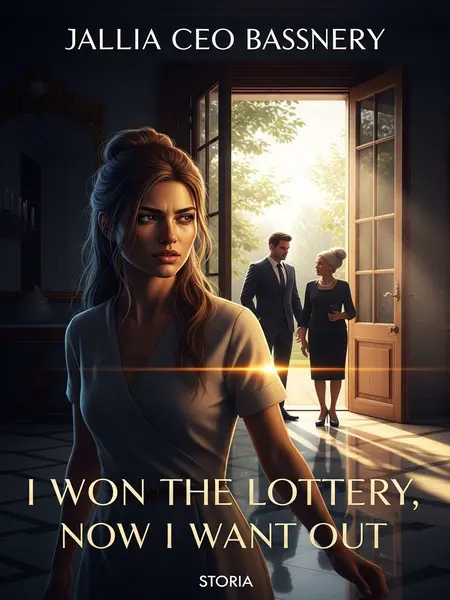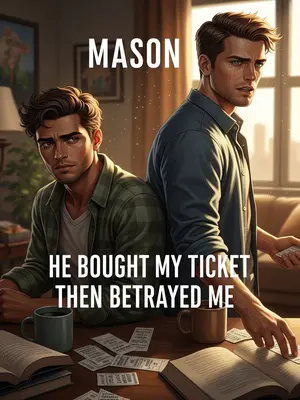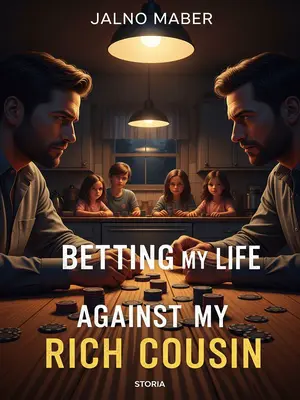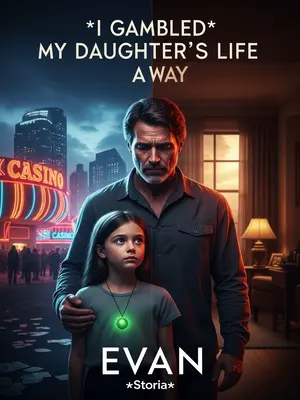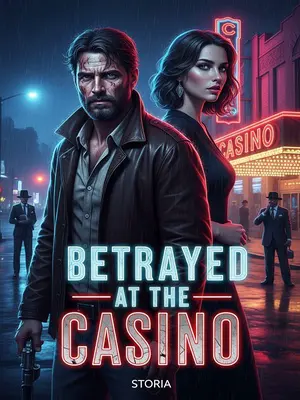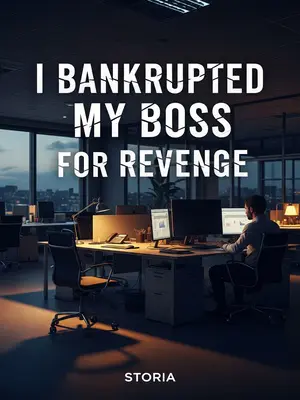Chapter 3: Drawing My Way to Freedom
After marrying Carter, I barely saw him.
He was a ghost in his own house—always working late, always somewhere else.
He was the head of Whitaker Holdings, always busy, rarely coming home—he mostly stayed in an apartment near headquarters.
The penthouse downtown was more his home than the mansion ever was. I doubted he even remembered the color of the kitchen walls.
Meanwhile, I was forced by Mrs. Whitaker to live in the old house and wait on her.
It was like being sentenced to a life of servitude, with no chance for parole.
Mrs. Whitaker tormented me because she looked down on me, thought I was beneath her son, that I disgraced him just by being around.
She never missed a chance to remind me I wasn’t good enough.
Her son marrying me was a massive injustice in her eyes.
She told anyone who’d listen that Carter could have done so much better.
To vent her frustration, she made me suffer.
It was her favorite pastime.
And I, needing the Whitaker family to pay my mom’s bills, had to swallow every humiliation.
I bit my tongue so often, I was surprised it didn’t bleed.
After marriage, I tried to find work. Even a low salary was better than nothing.
I scoured job boards, rewrote my resume, practiced interview questions in the mirror.
The Whitaker family only paid my mom’s bills—they gave me nothing for living expenses.
Every cent I spent came from my own dwindling savings.
I had to live, after all.
Even if I ate and slept at the Whitaker house, living costs money.
Toothpaste, tampons, a new pair of socks—everything added up.
But I didn’t expect finding a job would be so hard.
I thought I’d be flipping burgers or answering phones in no time. I was wrong.
Every resume I sent vanished into the void—I didn’t even get interview calls.
It was like my name was blacklisted.
Eventually, I stopped hoping for a job in my field—still, even as a receptionist at a small company, no one would hire me.
I even tried applying at the local mall. No luck.
Later, I tried clerical work, sales, tutoring… even working at a coffee shop—no matter what I applied for, they all had reasons to reject me.
I started to wonder if I’d forgotten how to interview. Maybe I was cursed.
Finally, I realized—the Whitaker family was interfering.
It hit me like a ton of bricks. I should have known.
Carter was going too far—he wanted total control, not even letting me have a job.
He was determined to keep me dependent, powerless.
"I need to work. I can’t have nothing."
I cornered him one night, catching him on his way out the door. My voice was shaky but firm.
When Carter finally came home, I stopped him.
He looked at me like I was a stranger, his eyes cold and distant.
He glanced at me, his tone cold: "You eat and live with the Whitaker family. Every quarter, I have my assistant buy you clothes. If you need anything else, tell him. He’ll buy it."
His words stung, each one a reminder of how little I mattered.
"So when I need to buy tampons every month, I have to ask your assistant too?"
The words slipped out before I could stop them. I was mortified, but I didn’t back down.
Saying that was humiliating beyond words.
My cheeks burned, but I held his gaze. I wanted him to feel just a fraction of my shame.
Right then, I felt like a pitiful dog, begging for scraps from my master.
I hated myself for it, but I had no choice.
No dignity left.
I wondered if I’d ever get it back.
No one would believe that Carter Whitaker’s legal wife lived so miserably, not even able to buy her own pads.
To the world, I was supposed to be living the dream. The reality was a nightmare.
He paused, probably never having thought about it.
For a moment, he actually looked uncomfortable. I almost felt sorry for him—almost.
His assistants were all men—not exactly convenient.
He probably never even considered my needs. Why would he?
"Fine, I’ll have my assistant transfer you $150 a month. Is that enough?" He hesitated, then asked.
His tone was grudging, as if every dollar cost him personally.
"That’s enough." I nodded. "I’ll write an IOU."
I kept my voice even, determined not to show how much it hurt.
He paused again. "No need."
He almost sounded annoyed, like I was being difficult for no reason.
Ha, how generous.
It was a joke, but I kept my face straight.
"Let’s write it anyway," I looked at him. "If we agreed your money is a loan, then every cent should be recorded."
I wanted everything in black and white. No more surprises.
Carter’s tone was indifferent: "Suit yourself."
He turned away, already done with the conversation.
After that, I took out my laptop and threw myself into my old hobby—drawing.
If I couldn’t work, I’d find another way to keep my sanity.
Since Carter wouldn’t let me work, I couldn’t fight it, but I wouldn’t just give up. I had to find a way out for myself.
I needed something that was mine, something no one could take away.
Though I was ready to swallow my pride, being so tightly controlled was suffocating.
Every day felt like drowning in slow motion.
Every day was agony.
I counted the hours, waiting for bedtime, just so I could escape into sleep.
I wanted to breathe, and I wasn’t willing to be trampled forever.
I swore to myself I’d find a way out. Somehow.
I’d always loved drawing—took classes as a kid, so I had some basics.
My childhood sketchbooks were filled with doodles of dogs, houses, and dreams.
With all my practice, I improved quickly.
I watched YouTube tutorials, joined online art communities, and practiced until my fingers cramped.
I joined all kinds of commission groups, starting with simple profile pictures—$1 or $2 each—but I loved every minute.
My first customer was a teenager from Texas who wanted a cartoon of her dog. She paid me $2 and left a glowing review. It made my week.
Later, as my skills and reputation grew, I got better commissions at higher prices.
I started drawing couples, families, even a mural for a local café. Each project gave me a little more confidence.
I didn’t make much, but at least I felt some self-worth—like I wasn’t just a walking corpse.
It was the first time in months I felt alive.
I registered an Instagram account under a pen name, posting my work daily and slowly building a following.
My followers were strangers, but their encouragement felt more real than anything in the Whitaker house.
It was the only glimmer of light in my bleak, hopeless life.
I clung to it like a lifeline.
One day, I saw a post on Instagram—someone had won the lottery for ten million dollars.
The story was everywhere—photos of the winner holding a giant check, confetti falling. It looked like a dream.
I started buying tickets every day—sometimes just a few bucks, sometimes twenty or thirty.
It became a ritual, a tiny rebellion against my circumstances.
I wasn’t really expecting to win, just trying to give myself some hope.
It was less about the money, more about having something to look forward to.
Life was so dull and boring—if I had no hope at all, I was afraid I’d lose the will to live.
Some days, hope was the only thing that kept me going.
Buying tickets and checking numbers became one of my few pleasures.
It was a small thrill, like spinning the wheel on a game show.
Even if I lost, I didn’t mind—there was always tomorrow.
Hope was cheap, and I needed it more than anything.
I never expected to actually win.
When I saw the numbers match, I stared at the screen for five minutes, convinced it was a mistake.
It felt like I’d finally been set free.
The weight on my chest lifted, replaced by something wild and electric.
That’s why, the moment I saw my winning numbers, I dumped the foot-bath water on Mrs. Whitaker’s head.
It was reckless and childish, but I’d never felt so alive. For once, I was the one in control.
After being oppressed for so long, I really needed to let off steam.
It was like popping a balloon that had been stretched to the breaking point.
And it felt every bit as satisfying as I’d imagined.
Better, even. I’d replay that moment in my head for years.
The next morning, I went straight to the lottery center.
I barely slept. My hands shook as I filled out the paperwork. The staff congratulated me, but I could barely hear them over the pounding of my heart.
After taxes, five million dollars landed in my bank account.
I stared at the balance, numb with disbelief. It didn’t feel real until I saw the numbers on my phone.
Leaving the bank, I sat on the steps outside and sobbed my heart out.
I buried my face in my hands and let it all out—the fear, the anger, the relief. People passing by stared, but I didn’t care.
I was finally free.
For the first time in years, I could breathe.
It felt like I was releasing all the emotions I’d suppressed for over a year.
I cried for my mom, for Ben, for the girl I used to be. I cried until there was nothing left.
That suffocating, soul-crushing life—I had no idea how much longer I could have endured. Maybe I would have collapsed at any moment.
I realized just how close I’d come to breaking.
Finally, the universe cut me a break.
I looked up at the sky, whispering a silent thank you to whoever was listening.
From now on, I’d break my chains and live free.
I promised myself I’d never let anyone control me again.
No one could bully or oppress me anymore.
Those days were over. For good.
Next, I went to the hospital and immediately arranged to transfer my mom.
I called the best hospital in the city, explained the situation, and paid the deposit in cash. The staff were kind, efficient, and never once looked down on me.
The hospital she was in belonged to the Whitaker family.
Even the walls felt cold and unfriendly. I couldn’t wait to leave.
There were plenty of good hospitals in town—I didn’t want to live under the Whitaker family’s watch any longer. The farther away, the better.
I chose a facility with big windows and a garden view. My mom deserved better.
I moved my mom to a top-tier hospital in the city.
She looked peaceful in her new room, sunlight streaming in. I held her hand and promised things would be different now.
